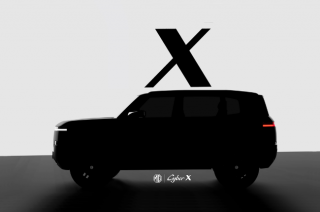Automakers around the globe are now picking up the pace of the production of electric vehicles (EVs), with some shifting into gear faster than others. Mazda is on the slower side of the scale when it comes to electrification. However, this pace is not due to stubbornness but rather a deliberate and cautious approach, with Mazda prioritizing the expansion of its hybrid lineup to align with customer preferences.
During a recent interview with Automotive News, Mazda's CEO, Masahiro Moro, revealed the company's intention to include seven or eight EVs in its lineup by 2030, expecting them to contribute to 25 to 40 percent of its global sales. In comparison to some competitors, Mazda's approach appears less aggressive, influenced by the current uncertainty regarding the demand for EVs.
“Between now and 2030 is the dawn period of electrification — we have to go over this bumpy ride. We just have to deal with the consumer’s needs and wants. Right now, the customer is looking for alternative solutions — other than battery EVs.”
Mazda's upcoming EVs are set to be designed and marketed under the newly established e-Mazda division, utilizing a scalable platform. Details on the type of batteries Mazda will be using are still under wraps, with Moro choosing not to disclose details. There is good news though, according to Moro, Mazda’s engineers are exploring the possibility of providing three different motor sizes, emphasizing the goal of making Mazda's EVs more lightweight and cheaper.
The company has enlisted the services of three battery suppliers, including Panasonic and Envision AESC Japan. Another supplier, Prime Planet Energy & Solutions, is a collaborative effort between Panasonic and Toyota.

Speaking of Toyota, Mazda is set to leverage Toyota's expertise to significantly reduce the investment needed for its EVs. The integration of electronic and automotive software systems, developed in collaboration with Toyota, is slated for implementation in Mazda's EVs starting around 2026. Moro says this collaboration is expected to result in substantial cost savings, amounting to 70 to 80 percent of the total investment costs that Mazda would have incurred if pursuing the endeavor independently.
Though Mazda is leaning heavily on Toyota’s expertise in its electrification efforts, Mazda will continue to retain the in-house development of vehicle platforms. Moro explained, "That is for the sake of Mazda being an independent brand."
Latest News
-
MG teases the Cyber X—Could it be headed for PH next? / News
MG will soon launch the all-new Cyber X at the upcoming Shanghai Auto Show. The new model brings a fresh, boxy design and might be MG’s next electric or hybrid vehicle. More details will be...
-
MIAS 2025: GAC Motor Philippines brings excitement with M8 PHEV debut and exclusive offers / News
GAC starts the journey toward electrification with the unveiling of the M8 PHEV, a hybrid version of its luxury minivan.
-
MIAS 2025: Chery presents three new models for the PH market / News
The Tiggo nameplate gets three new additions as Chery showcased at the 2025 Manila International Auto Show.
Popular Articles
-
Cheapest cars under P700,000 in the Philippines
Jerome Tresvalles · Sep 02, 2024
-
First car or next car, the Ford EcoSport is a tough package to beat
Jun 18, 2021
-
Car Maintenance checklist and guide – here’s everything you need to know
Earl Lee · Jan 12, 2021
-
Most fuel efficient family cars in the Philippines
Bryan Aaron Rivera · Nov 27, 2020
-
2021 Geely Okavango — Everything you need to know
Joey Deriquito · Nov 19, 2020
-
Family cars in the Philippines with the biggest trunks
Sep 20, 2023
-
Head to head: Toyota Rush vs. Suzuki XL7
Joey Deriquito · Oct 28, 2020
-
Why oil changes are important for your car
Earl Lee · Nov 10, 2020
-
2021 Kia Stonic — What you need to know about it
Joey Deriquito · Oct 16, 2020
-
Top 7 tips for buying a used car in the Philippines
Joey Deriquito · Nov 26, 2020




